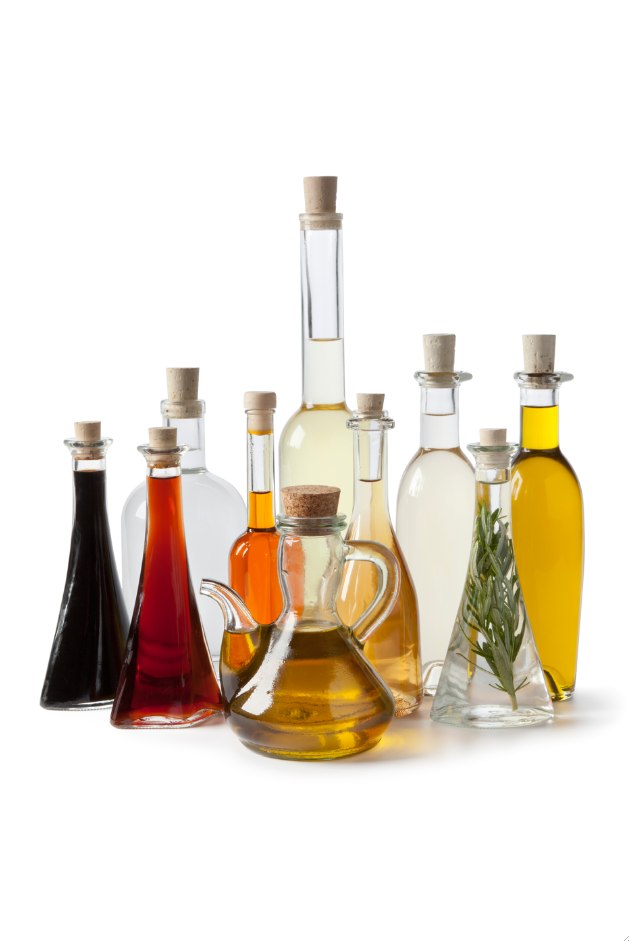Does your face pucker when you read the word “vinegar”? Or do you find yourself dreaming of a velvety and sweet balsamic reduction on mozzarella and tomatoes? No matter which camp you fall into, vinegar is an excellent pantry addition. There are plenty of ways you can learn to love it even if you’re apprehensive.
BALSAMIC VINEGAR
Oftentimes, the balsamic you see in grocery stores is colored wine vinegar, so be sure to read the ingredients list and look for grape must, aged grape must, mosto d’uva or DOC. True balsamic can be pricey, but the taste and benefits are worth it.
Benefits: Balsamic is low in calories, contains polyphenols that help to stabilize cholesterol levels and has immune-boosting antioxidants.
Popular uses: Use it as a salad dressing, drizzled on fruit like strawberries or watermelon, or as a dressing for braised meats and vegetables.
APPLE CIDER VINEGAR (ACV)
ACV is the one often touted as an out-of-this-world health elixir, and while not everything you read about it is confirmed, there are plenty of proven health benefits.
Benefits: ACV contains pectin, which can help soothe intestinal spasms that cause upset stomachs, as well as acetic acid, which can suppress your appetite, increase your metabolism and reduce water retention. Additionally, ACV contains potassium and enzymes that aid in boosting your energy levels.
Popular uses: A common way for many to take ACV is by mixing it with honey and cayenne as a daily “shot” of health or simply adding a few teaspoons to water. If you’re not big on the straight shooter taste, adding ACV to sparkling water, into a salad dressing mix, or into smoothies are other simple ways to reap the benefits.
DISTILLED WHITE VINEGAR
White vinegar comes from the fermentation of distilled alcohol that results in 5–8% acetic acid, also known as distilled white vinegar.
Benefits: The acetic acid in white vinegar can reduce blood sugar spikes when taken with high-carbohydrate foods and help control blood pressure. It also has anti-infective properties that can boost the immune system.
Popular uses: Distilled white vinegar has a harsher flavor than any of the other, which makes it less appealing for everyday consumption, although some people do mix it into their water. In Thai and Vietnamese cuisine white vinegar is commonly used in marinades, sauces and to pickle vegetables.
RED WINE VINEGAR
Red wine vinegar is exactly what it sounds like. It is red wine that has been fermented, which classifies it as a vinegar.
Benefits: Like the other aforementioned vinegars, this is low in calories and doesn’t contain cholesterol. However, unlike the others, red wine vinegar does contain trace amounts of key nutrients such as potassium and vitamin C.
Popular uses: This is often used in marinades for meats and fish, dressings for salads and vegetables, and also splashed over grilled fruit as an accompaniment.
Related Articles:

